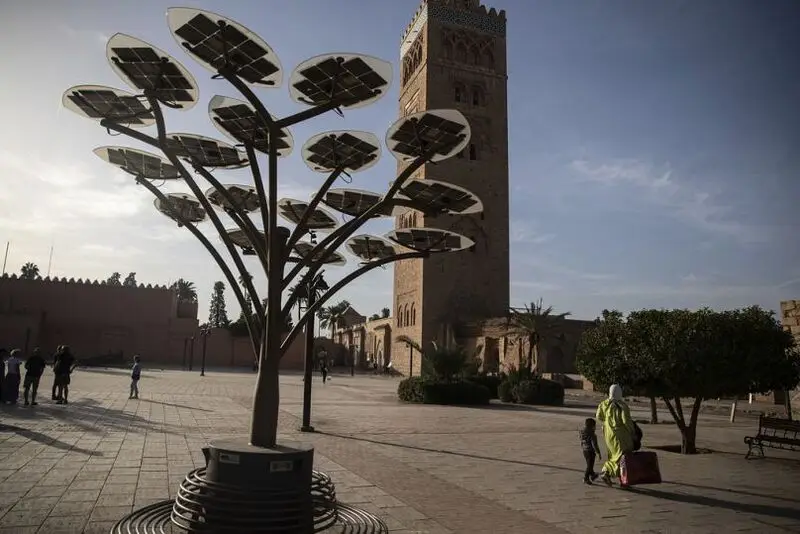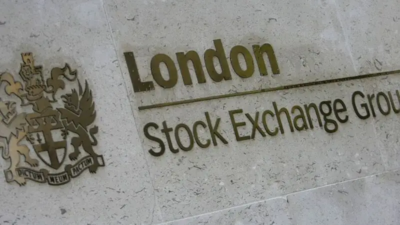Euroviews. Europe’s long-term economic growth is tied to frontier markets
Europe has all of the ingredients for reliable economic growth: a strong workforce of skilled and unskilled workers, a stable political climate, and an easy-to-navigate single market.
The obvious question is why economic expansion is still stagnating — with only 0.5% estimated growth in 2023, as reported by the European Commission).
The more interesting question is how to address it. The answer is that Europe’s long-term economic prospects will not be created by intra-European initiatives alone but instead on growing relationships with rapidly expanding frontier markets like Africa.
Important, though, is that the word used is relationships. Over the centuries, Europe has had plenty of international presence within African countries that was not anywhere close to a fair or equitable relationship.
It is no wonder that today, we see a European continent that lacks regulatory and fintech connections with the frontier markets of Africa. These markets were capitalised upon, but not prioritised.
And the resulting lack of infrastructure (not just with frontier markets but within Europe) makes it nearly impossible for European businesses to scale to these countries with any ease.
It also prevents businesses from these markets from expanding to Europe as employers and taxable entities.
Businesses shouldn't rely on outdated practices
There are two reasons Europe lacks this infrastructure: regulatory arbitrage and outdated financial connections.
European businesses will not expand to new markets without regulatory clearance. When it comes to market expansion, many European businesses are still used to doing business only within the EU framework.
So it is infrequent that they consider expanding to markets with new regulations entirely, as their “new market teams”, if they have them at all, are primarily experienced with European regulations.
At the same time, there’s concern about getting the right licences to operate. In many places, retaining licences or getting new ones for new activities still depends on who you know.
As banks de-risk in times of lower growth, they also tend to shed companies with frontier market exposure and close the accounts of “riskier” startups and fintechs who drive less revenue.
In short, unless you know the right people, getting licences to expand your business, retaining a licence you already have, or being confident in your business’s ability to maintain a bank account, is difficult.
Fix this and we stand to profit
As for financial connections, European businesses continue to struggle with reliable pricing for foreign exchange, as many European businesses have gotten comfortable in the single monetary union — where they can enter new markets without thinking about FX.
They also struggle to work with the tapestry of players that exist in most African markets, from telcos, banks, government switches, aggregators, and payments services providers (PSPs).
Moving money and making payments to vendors, suppliers, and employees is easy enough in the eurozone (assuming your business stays banked), but it becomes increasingly difficult without partners.
European banks could stand to increase their integrations with international fintechs, including those in Africa, to offer better and more reliable pricing and payments for their business customers.
Especially now that African fintechs have built the financial infrastructure, there’s no reason making direct euro-to-African-currency payments or currency exchange should be an obstacle to European businesses.
These are not easy problems to solve — but they are easier places to start if we aim to make Europe’s long-term growth materialise.
At the very least, these are two areas where marginal gains should make an impact on 2024’s ability to show more than a half-percent growth in economic activity on the continent.
Elizabeth Rossiello is Founder of AZA Finance, an EU/Africa fintech company.
At HyipScan.Net, we believe all views matter. Contact us at view@euronews.com to send pitches or submissions and be part of the conversation.
Maybe You Like
London Stock Exchange urged to do more to hold onto retail traders
The UK stock market needs to improve investor communication and engagement in order to retain its individual traders, according to a report from online trade and investor provider CMC Markets. ADVERTISEMENTUK retail investors are increasingly...
Hargreaves Lansdown rejects private equity takeover bid
The UK investment platform says the offer from a group including the Abu Dhabi Investment Authority undervalues the firm. ADVERTISEMENTHargreaves Lansdown has rebuffed a takeover proposal worth £4.67 billion (€5.48 billion) made...
Ferrovial set to offload UK regional airports amid Heathrow deal uncertainty
Ferrovial is planning to sell its stake in three UK regional airports amid difficulties in finalising its £2.4bn sale of a 25% stake in Heathrow. ADVERTISEMENTSpanish infrastructure company Ferrovial is reportedly putting up for sale...





























